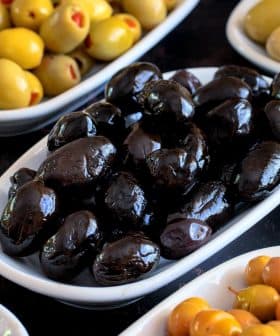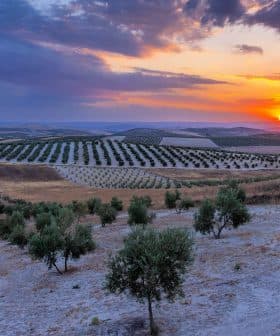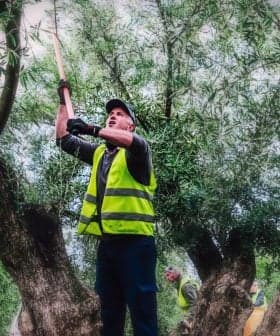Jaén Co-op Warns of €1B Loss for Province’s Olive Sector
The Agri-food Cooperative of Jaén has warned that the province’s olive oil sector could face a €1 billion loss in earnings in the coming season, with workers estimated to lose €150 million in daily wages due to low levels of olives on the trees. The unprecedented drought in the Iberian Peninsula resulted in a historically poor harvest in the 2022/23 crop year, prompting concerns about the impact on the local economy and the potential exodus of young people involved in agriculture.
With the start of the 2023 harvest underway in Andalusia, the Agri-food Cooperative of Jaén has warned that the province’s olive oil sector could again face a staggering €1 billion loss in earnings in the coming season.
Included in the significant hit to the local economy, the cooperative estimated that workers in the province would lose €150 million in daily wages with fewer people required for the harvest due to the low levels of olives on the trees.
In central Andalusia, Jaén is the world’s largest olive oil-producing province. In a “normal” season, which the province has not enjoyed since the 2021/22 crop year, Jaén produces roughly 500,000 tons of olive oil, about 40 percent of Spanish production.
See Also:Spain Lowers Barriers for Agricultural Workers to Access Wage SubsidiesHowever, the Iberian Peninsula’s unprecedented drought resulted in a historically poor harvest in the 2022/23 crop year. Recent rain across the region fell too late to save this year’s crop, with expectations that Spain will produce less than 1 million tons of olive oil for the second consecutive year.
José Manuel Espejo, the cooperative’s president, said there had never been two consecutive years of such low harvests nor two successive droughts of this magnitude, underlining that the challenges faced by the sector are extraordinary.
He added that the €150 million in lost wages for workers would ripple effect across the entire economy and be exacerbated due to the area’s heavy dependence on olive oil farming.
The connection between the local economy in Jaén and olive production is significant, and it dictates the health of the region’s economy and agricultural employment. Espejo urged farmers and agricultural associations to work together to save money.
He also emphasized the importance of additional support for the agricultural sector from the provincial government, Andalusian government and central government through safeguarding employment and preventing the exodus of young people involved in agriculture.
Due to the sharp decrease in available jobs for a second year running, Espejo said it could prompt young people to leave Jaén, which was the reason for recent protests in Córdoba on September 5th.
According to local media reports, some agricultural workers have left Jaén and traveled to France to harvest grapes.
The demonstration was meant to send a direct message to the European ministers gathering in the Andalusian city.
Farmers protested increased environmental regulations outlined in the latest iteration of the Common Agricultural Policy, demanded stricter rules on agricultural imports from non-European countries and criticized the proposed free trade agreement with the Mercosur.
According to local media reports, production costs for Andalusian farmers rose by more than 35 percent in 2022 while the drought lowered the productive output of a range of crops.
Cristóbal Cano, the secretary-general of the Union of Small Farmers and Ranchers in Andalusia, said rising olive oil prices were not helping farmers, as they did not make up for production declines.
“[The current price of olive oil] does not benefit consumers or farmers because it does not directly affect their income statement since they do not have a significant harvest to be able to sell,” he said.









